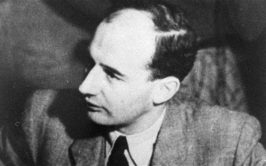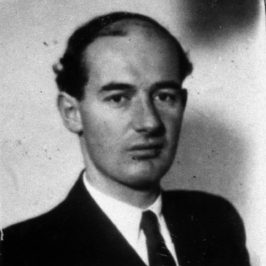A Moscow court has rejected a request from the family of Raoul Wallenberg, a Swedish diplomat and Holocaust hero, to force the Russian FSB security service to release classified documents that could have shed light on his death.
Wallenberg was stationed in Hungary during the Second World War, and used his position to help tens of thousands of Hungarian Jews escape the Holocaust.
But as the war drew to a close in 1945, Soviet forces arrested him and Wallenberg disappeared without a trace.
His fate has been subject to speculation ever since.
Conflicting accounts place his death in Moscow’s Lefortovo prison anywhere from 1947 to the mid-1950s.
Seventy years later, Wallenberg’s descendants began legal proceedings to discover the truth. Maria Dupuy, Wallenberg’s niece, launched an attempt to get Russia’s FSB, the successor agency to the Soviet KGB, to release the full archive of information on the diplomat.
The agency refused her requests for information, leading Ms Dupuy to file a lawsuit against the FSB in July.
Her case was taken on by Ivan Pavlov, an accomplished human rights lawyer.
But the court rejected the lawsuit in a one-day hearing, accepting the FSB’s argument that the documents could not be released because they contained personal information about other individuals.
The USSR in 1957 made public a document saying Wallenberg died of heart failure in the Lubyanka prison in July 1947, but his family refused to accept the official version.
In 2000, the head of a Russian investigative commission said Wallenberg had been shot and killed by the secret police, but gave no specific details.
An FSB representative said that the documents from 1947 can only be made available in 2022 after an official 75-year waiting period to declassify the documents has passed.
“You can wait for these deadlines,” he told the family. Sweden only officially declared Wallenberg dead in 2016, but his body has never been returned to his family.


